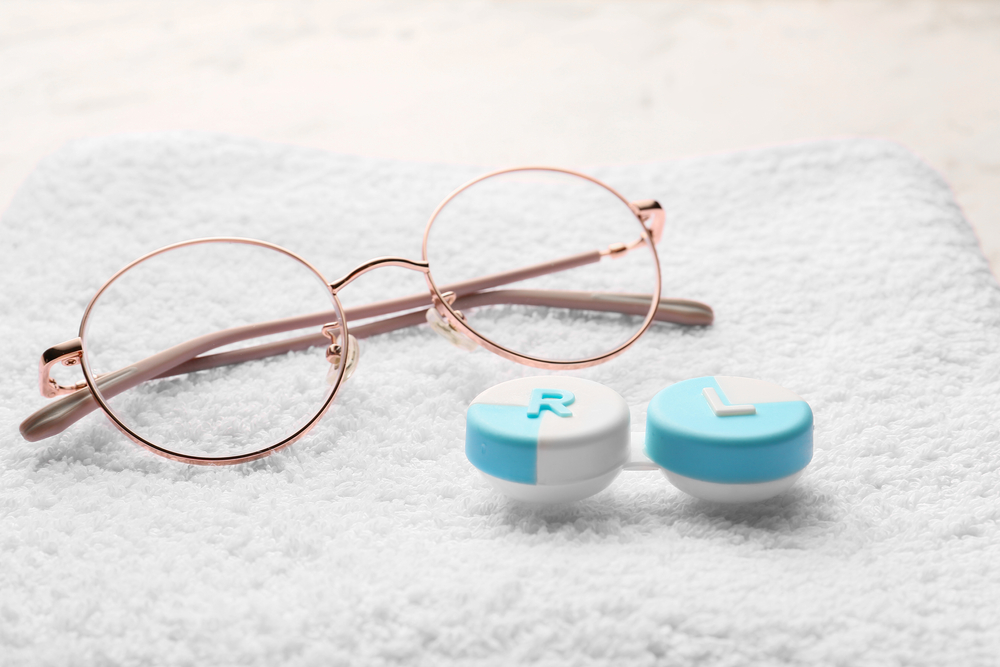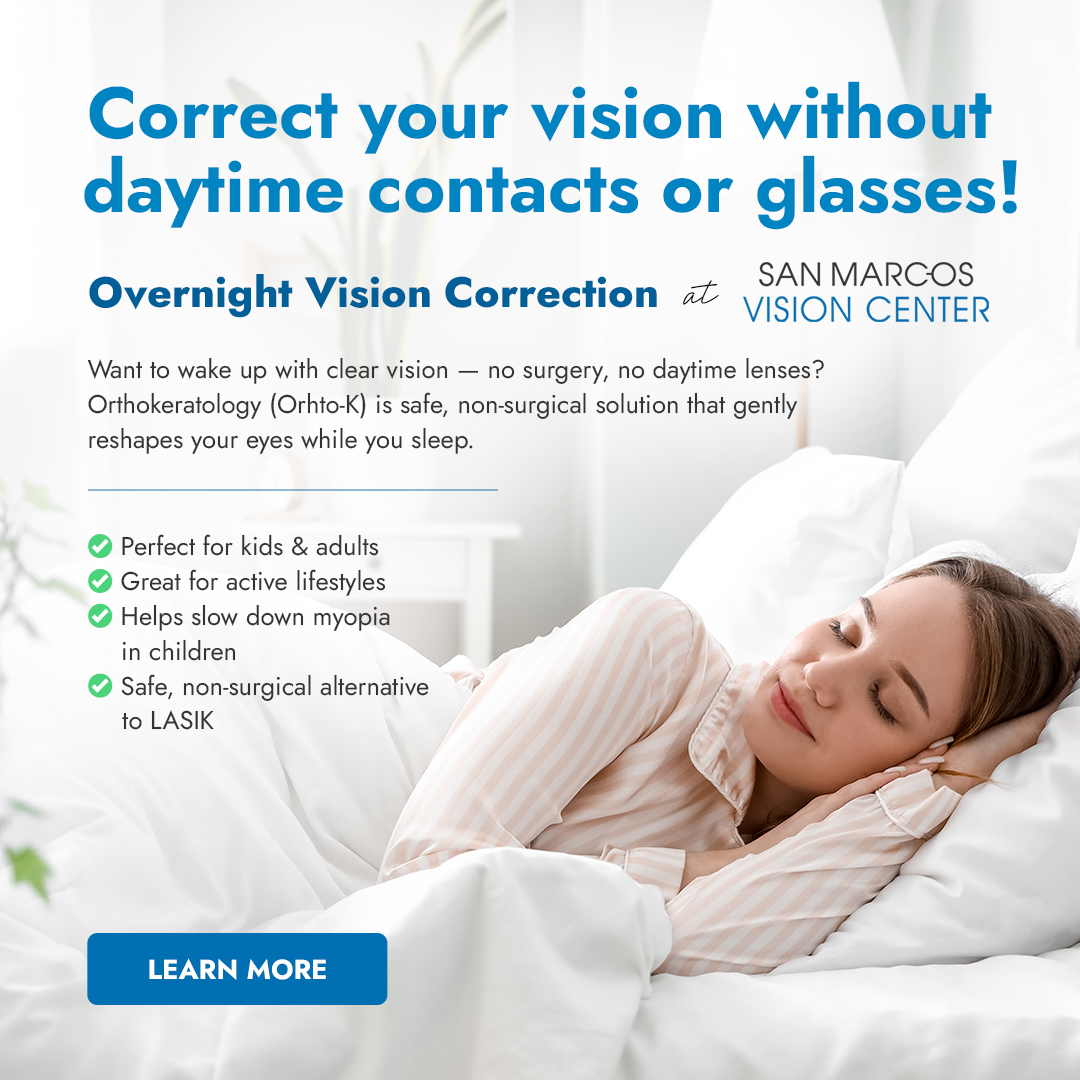
Your vision is a vital aspect of your quality of life, so if you have an eye condition like myopia, hyperopia, or astigmatism, corrective eyewear can make a significant difference. The most common options for vision correction are contact lenses and glasses. While both serve the same essential purpose—improving your eyesight—each comes with its set of pros and cons. So, which one is right for you? This blog will help you make an informed decision about the best option for your unique needs and preferences.
Understanding Eye Conditions
Before we dive into the comparison, let's take a quick look at the three main eye conditions that corrective eyewear addresses:
1. Myopia (nearsightedness): This common eye condition makes it difficult to see distant objects clearly because the eye elongates, causing light to focus in front of the retina.
2. Hyperopia (farsightedness): The opposite of nearsightedness, farsightedness occurs when the eye is shorter than normal, causing light to focus behind the retina. This makes it difficult to see nearby objects clearly.
3. Astigmatism: This occurs when the cornea has an irregular shape, causing blurred or distorted vision at all distances.
Both glasses and contact lenses can correct these vision problems, albeit with some differences in terms of comfort, clarity, adaptability to various activities, cost, and more.
Considerations in Choosing Between Contacts and Glasses
When deciding between contact lenses and glasses, consider the following factors:
● Comfort: Some people find glasses more comfortable, while others prefer the feeling of contact lenses. Ensure that your choice guarantees your comfort for an extended period.
● Vision clarity: Each option offers different levels of clarity. Contact lenses provide a wider field of vision, while some may find the edges of their glasses frame interrupting their peripheral view.
● Lifestyle and convenience: Consider your daily activities and which option better suits your lifestyle. Are you an athlete, an outdoor enthusiast, or someone who spends most of their day in front of a computer?
● Allergy or sensitivity: If you have allergies or sensitive eyes, the eye care products required for contact lenses might create discomfort.
● Cost: Both glasses and contacts come in various price ranges, but factor in the long-term expenses, such as replacement lenses, cleaning solutions, and more.
● Maintenance: Contacts require more consistent cleaning, while glasses are generally lower maintenance.
With these points in mind, let’s delve into the pros and cons of both options.
Pros and Cons of Contact Lenses
Contact lenses are thin, curved lenses that you place directly on your eyes' surfaces. They can correct various vision problems — including myopia, hyperopia, and astigmatism.
Advantages
● Aesthetics: For many people, contact lenses offer a more pleasing appearance. They allow for a natural look and showcase your eyes without the presence of frames. You can also experiment with different colored lenses to enhance your eye color or change it completely.
● Sports and physical activities: Active individuals often prefer contact lenses because they stay in place during strenuous activities, don't fog up (unlike glasses), and won't fall off or break during fast-paced action.
● Greater field of vision: Because contact lenses sit directly on your eyes, they follow your gaze, allowing for an undistorted and wider field of vision, including your peripheral view.
Disadvantages
● Regular cleaning and maintenance: Contact lenses need proper cleaning every day, and they also require specific solutions and storage cases for proper care. This extra daily routine may be off-putting for some people.
● Risk of infection or eye damage: Poor hygiene or improper handling of contact lenses can lead to eye infections or even scratching your cornea. It's crucial to maintain a high level of cleanliness to avoid these risks.
● Additional expenses: While the initial cost of contact lenses may be affordable, keep in mind the ongoing expenses, such as replacing lenses every few weeks or months, and the cost of cleaning solutions.
Pros and Cons of Glasses
Glasses, with their corrective lenses set into frames, have been around for centuries. They correct the refractive errors by focusing light directly onto your retinas.
Advantages
● Protection from environmental factors: Glasses offer some protection from various weather conditions, such as wind, dust, or debris. They can also shield your eyes from potential hazards if you choose lenses with protective coatings (UV, blue light, or anti-fog).
● Ease of use and maintenance: Glasses are generally more comfortable in the long run (once you're used to them). They are simple to take off and put on, and there's no need for constant cleaning since you typically clean them only when they're noticeably dirty or when you notice a smudge.
● Style factor: Nowadays, glasses are more than just a functional accessory; they can enhance your overall appearance. With countless frame styles available, you can find glasses that complement your features and personal style.
Disadvantages
● Obstructed peripheral vision: A glasses frame can obstruct your peripheral view, and some people may notice a slight distortion at the edge of the lens. This issue, however, is more prevalent in high-index lenses and not so much in low-index lenses.
● Weather conditions: Glasses can be affected by various weather conditions, such as rain, cold, or humidity. These conditions can cause them to fog up or collect water droplets on the lenses, which may momentarily impede your vision.
● Potential discomfort: Some people may experience discomfort from wearing glasses, especially if the frames are too tight or too heavy, or the nose pads may cause irritation.
Ensure you select a proper fit and consider lighter materials if you're worried about these issues.
Hybrid Solutions: Combining Glasses with Contact Lenses
Choosing between glasses and contact lenses isn't always black and white. Many people discover that a mix of both can best meet their lifestyle needs and preferences. This hybrid approach allows you to enjoy the benefits of both glasses and contacts, minimizing their drawbacks.
Using Contact Lenses During the Day
During daytime activities, contact lenses provide an unobstructed field of vision, greater peripheral visibility, and aesthetic versatility. They easily adapt to various situations and outfits, enhancing your daily experience and self-confidence.
Opting for Glasses in the Evening
Glasses give tired eyes a break in the evening, offering comfortable vision correction without the need for nightly cleaning. With specialized lens coatings, they also improve evening viewing comfort by minimizing blue light exposure, contributing to better sleep.
Balancing Contacts and Glasses for Activities
Contact lenses provide practical benefits for sports and outdoor activities. Glasses can offer comfort during reading or computer work, and stylish frames can also serve as fashionable accessories for events or occasions. This hybrid approach allows adaptability and flexibility in various situations.
Consultation With an Eye Care Professional
No matter how much research you do, seeking professional advice is critical when deciding between glasses and contact lenses. Here's why a consultation with an eye care professional is essential:
Assessing Eye Health
Eye care professionals can evaluate your eyes' overall health and identify any conditions that might influence your choice between glasses and contact lenses. For example, if you have dry eyes, glasses may be more comfortable.
Analyzing Lifestyle and Preferences
Your doctor will consider your daily routine, work circumstances, hobbies, and personal preferences. This lifestyle analysis helps them suggest the ideal corrective eyewear, whether that be glasses, contact lenses, or a combination of both.
Recommending Specific Options
In many cases, an eye care professional can recommend specific eyewear options tailored to your unique needs:
● Certain types of contact lenses, such as daily, monthly, or extended-wear lenses, are also available.
● Specially coated or tinted glasses lenses, such as anti-reflective, blue light filters, or UV protection.
● Customized glasses frames to ensure a comfortable and stylish fit.
Providing Ongoing Eye Care
Maintaining regular appointments with your eye care provider ensures you receive the correct prescription and helps monitor your ongoing eye health, which can often change over time.
Conclusion
When it comes to choosing between contact lenses and glasses, there's no one-size-fits-all answer. Your decision largely depends on your lifestyle, visual needs, and personal preferences. Both options have their benefits and drawbacks, so it's essential to carefully consider your unique requirements before making your choice.
Remember that your selection is not a lifetime commitment. As your needs and preferences change, your choice of corrective eyewear can change, too. The most important thing is to maintain your eye health by attending regular check-ups with an eye care professional and ensuring you use proper hygiene and care, regardless of your choice.

 Specialty Contacts
Specialty Contacts





